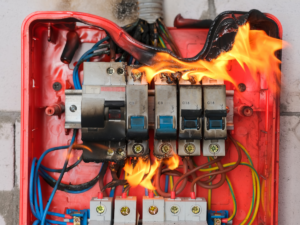The Signs Your Circuit Breakers Has Gone Bad
Recognizing The Signs Bad circuit breakers aren’t just inconvenient; it can be very dangerous. We tend to take circuit breakers for granted, assuming that if they worked when installed, they’ll continue to work. Circuit breakers are designed to disallow short circuits and overloads, so breaker failure is serious. Circuit breakers are one of the most-used features of your home, and the lifespan of a breaker is, on average, 30 to 40 years, but not all





